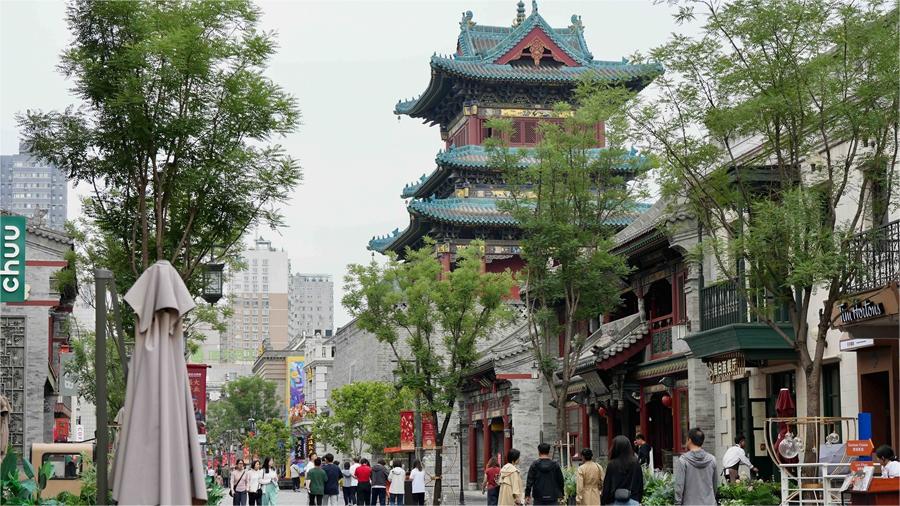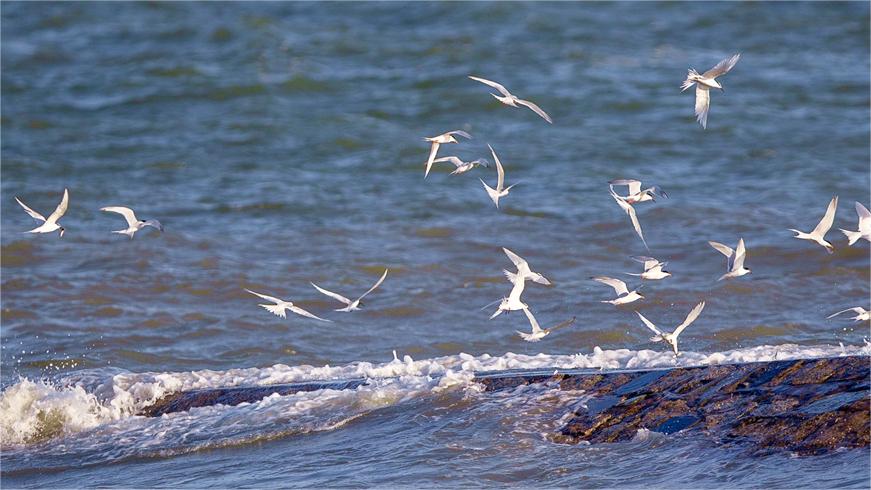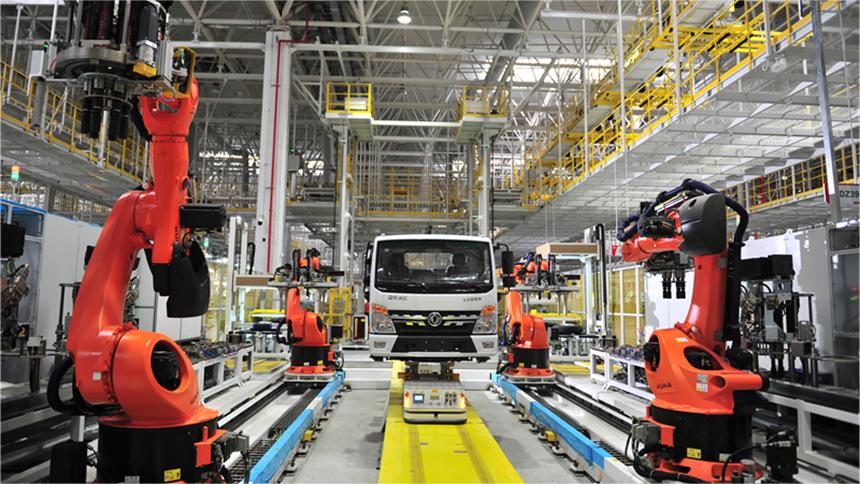China-Australia cooperation can cross Pacific, transcend differences: Premier Li
Chinese Premier Li Qiang on Sunday visited Adelaide Zoo, which has been home to two China-born giant pandas, where he announced that China will continue panda research cooperation with Australia. The premier's visit to Adelaide Zoo hosting giant pandas on the second day of his visit to Australia demonstrated that Beijing values ties with Canberra, said experts.
Observers believe that the pragmatism and goodwill shown by the current Australian government will further elevate bilateral cooperation. While there are still some differences between the two countries, the focus now is on preventing these discrepancies from escalating into new conflicts and ensuring that they do not overshadow the overall relationship.
Li arrived in the southern city of Adelaide on Saturday for the first leg of his trip, and arrived at Adelaide Zoo on Sunday to learn about China-Australia cooperation in the field of panda protection and research. Adelaide Zoo hosts Wang Wang and Fu Ni, the Southern Hemisphere's only pair of giant pandas.
Li said the two pandas in Australia will return to China this year as agreed by the two sides, and that China is ready to continue cooperation with Australia on panda protection and research. He expressed the hope that Australia will always be a friendly home for giant pandas.
Li said he was glad to see that though they are far from their homeland, Wang Wang and Fu Ni have been well looked after and settled down to live a happy life in Australia. They have become envoys of the friendship between China and Australia, and a symbol of the profound friendship between the two peoples.
He noted that as long as both sides cherish it, the cooperation between China and Australia can cross the vast Pacific Ocean, transcend differences, and achieve mutual benefits and win-win results.
During his stay, Li and Australian Prime Minister Anthony Albanese will co-chair the ninth China-Australia Annual Leaders' Meeting and jointly attend a China-Australia CEO Roundtable Meeting, according to the Xinhua News Agency.
Li is the first Chinese premier to visit Australia in seven years.
More room for cooperation
Starting the trip to Australia by visiting zoo hosting giant pandas, China's national treasure, it's a signal that China attaches great importance to and value its ties with Australia, as well as Beijing's willingness to extend such a cherished friendship, Chen Hong, director of the Australian Studies Center of East China Normal University, told the Global Times on Sunday.
Australian Foreign Minister Penny Wong reportedly thanked Li for ensuring that pandas would remain the zoo's star attraction.
"It's good for the economy, it's good for South Australian jobs, it's good for tourism, and it is a signal of goodwill, and we thank you," Wong said.
Li is also scheduled to visit winemakers in the famed Barossa region near Adelaide, Wong's hometown, according to media reports.
China's Ministry of Commerce announced in March the decision to cancel anti-dumping and anti-subsidy tariffs levied on Australian wine. Experts believed the removal of the tariffs shows a pragmatic attitude from both sides to solving their trade disputes through dialogue and negotiations.
The proper settlement of some trade frictions between China and Australia recently proves that such disputes can be solved through pragmatic negotiation and good-will move, Chen noted. "Trade problems should not be subject to political manipulation. The previous Australian government tended to escalate trade quarrels to the political level and smeared China. Such moves, instead of solving trade frictions, caused bilateral ties to spiral down to a low point," Chen noted.
Chen was referring to former Australian prime minister Scott Morrison's calling China's tariffs on Australian goods "economic coercion."
Jocelyn Chey, former Australian diplomat and Australia's first cultural counselor in China, said there could be more room for elevating cooperation. "I am hopeful that high-level exchanges will increase trust at all levels of society and will encourage scientific, professional and cultural exchanges. I do expect trade and investment to be greatly boosted because the economies of both countries are highly complementary. I hope that tourism will increase in both directions," Chey said in an interview with the Global Times.
Shelving differences
Upon his arrival in Australia on Saturday, Li said that exchanges between China and Australia have a long history, and the friendship between the two peoples is growing ever stronger.
Last year, Albanese paid a successful visit to China, the Chinese premier said, when bilateral relations returned to the right track after many twists and turns.
History has proven that respecting each other, seeking common ground while shelving differences, and carrying out mutually beneficial cooperation bring valuable experience in the development of China-Australia relations, and need to be upheld and carried forward, he said.
Wong also noted that Australia was in a "permanent contest" with China over the Pacific, a state she blamed on the former Coalition government.
"That is the reality," she told the ABC. "I wish there was a rewind button to recover the last 10 years but we don't, we have to deal with what we have now which is a permanent contest in the Pacific."
"It won't be a plain sailing. The two countries have discrepancies on issues such as human rights and the South China Sea. Such differences will remain, as neither will be convinced by the other," Ning Tuanhui, an assistant research fellow at the China Institute of International Studies, told the Global Times.
Ning emphasized that while differences between countries may exist, they do not inevitably result in conflicts. He stressed the importance of effectively managing these differences and not allowing them to overshadow bilateral relations. Ning noted that regular high-level exchanges have expanded opportunities to address and manage these differences.
Canberra's alliance with Washington continues to be another flashpoint between China and Australia.
Yu Lei, a professor at the Department of International Politics and Economics at Shandong University, believes that it is still early to judge whether the relationship between the two countries can return to its previous high point. As an important member of the Western camp, Australia may face pressure from allies, especially the US. China and Australia have significant differences on issues such as security, especially in the advancement of AUKUS.
The alliance with Washington remains the cornerstone of Australian's foreign policy, thus its ties with the US are unlikely to be changed in the future, said Chen, but if Australia provokes China or harms its core interests, China will definitely fight back. Australia needs strategic prudence and political wisdom to avoid such a situation, said Chen.
Photos
Related Stories
- Building closer China-Australia friendship through panda protection cooperation
- China-Australia mutual popularity on the rise, people call for strengthened cooperation in new energy, climate change: GT survey
- Chinese premier says communication, dialogue key for China, Australia to enhance understanding
- Premier Li says greater development of China-Australia ties needs joint efforts
- Chinese premier to visit New Zealand, Australia, Malaysia
- Chinese envoy to Australia suggests businesses to promote bilateral ties
Copyright © 2024 People's Daily Online. All Rights Reserved.









